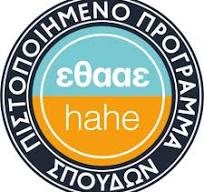Learning outcomes of the course unit
The aim of the course is to make the students able to understand the significance of culture and heritage for tourism development.
Religion is an important aspect of culture and the exploitation of religious-cultural heritage contributes to tourism development.
Upon completion of the course students will be able to:
- underst and the concepts of culture and cultural heritage
- underst and and manage the various aspects of culture
- underst and the importance of religious tourism and particularly the difference pilgrimage and tourism.
- underst and the cultural impact of religious tourism in tourist destinations
- identify key tourism related cultural, ecological and social impacts within a global context recognizing both positive and negative impacts.
Course contents
Culture and Tourism. Culture and cultural heritage. Cultural impacts in tourism. Cultural tourism and sustainable development. Institutions and actions (measures, projects). Monuments of world cultural heritage. Tourism impacts in culture (positive and negative). Attractions and events to ensure the sustainability of tourism resources (cultural and natural). Alternative types of tourism related to culture. The role of ecology. The interdependence of various types of tourism related impacts.
Planned learning activities and teaching methods
Lectures, case-studies
Assessment methods and criteria
Written exams 60%, 2 written assignments (and oral presentations) 40%
Language of instruction
English
Wednesday 16:00, T2
P. DOUROS
Contact: Panagiotis_douros@yahoo.gr


